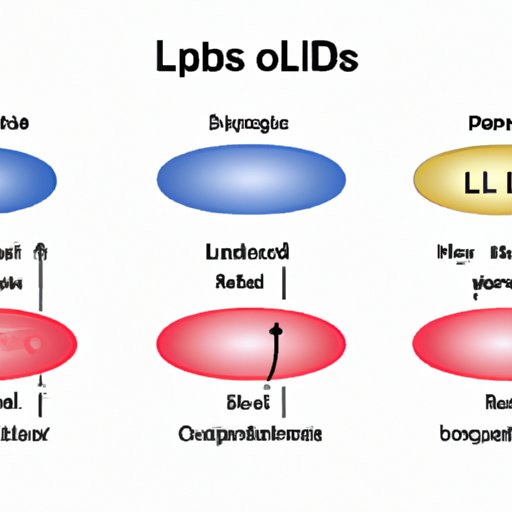Introduction
Despite being an essential nutrient, lipids are often associated with negative stereotypes and misconceptions. Many people assume that all fats are unhealthy and should be avoided at all costs. This lack of understanding can lead to suboptimal health, as lipids play a crucial role in various physiological processes. In this article, we will provide a comprehensive guide to understanding the function of lipids in the human body, their different types, and their health implications.
A comprehensive guide to understanding the function of lipids in the human body
Lipids are a diverse group of organic molecules that include fats, oils, waxes, steroids, and phospholipids. They are derived from both animal and plant sources, and some are produced by the body.
The importance of lipids in the body cannot be overstated. They are crucial for energy storage, cellular structure, hormone regulation, and nerve function. Lipids also act as a protective layer for vital organs and are essential for the absorption and transport of fat-soluble vitamins.
Different types of lipids and their specific functions
There are three main types of lipids: triglycerides, phospholipids, and cholesterol. Each type of lipid has a specific function in the body.
Triglycerides are the most common type of lipid found in the body. They are essential for energy storage and are found in large quantities in adipose tissue. Triglycerides are also transported in the bloodstream to provide energy to cells throughout the body.
Phospholipids are essential components of cell membranes, where they help to regulate the movement of molecules in and out of the cell. They are also involved in cellular signaling and the production of hormones.
Cholesterol is a type of lipid that is essential for the production of hormones, vitamin D, and bile acids. It is also involved in the structure and function of cell membranes. However, high levels of cholesterol in the blood can increase the risk of heart disease and stroke.
The importance of a balanced lipid intake in maintaining good health
A balanced lipid intake is essential for optimal health and well-being. Consuming too little fat can lead to malnutrition and fail to provide enough energy for daily activities. On the other hand, consuming excess fat can lead to weight gain and an increased risk of chronic diseases.
The American Heart Association recommends that individuals get 20-35% of their daily caloric intake from fats, with less than 10% from saturated fats. A balanced lipid intake can help to maintain healthy cholesterol levels, reduce inflammation, and manage weight.
Lipids in disease
Lipids play a crucial role in various diseases, including heart disease, diabetes, and obesity. Elevated levels of cholesterol and triglycerides are risk factors for heart disease. Insulin resistance, a hallmark of type 2 diabetes, is associated with higher levels of triglycerides in the blood. Excess fat accumulation in adipose tissue is a key component of obesity.
However, modifying lipid intake can help manage or prevent these conditions. A diet that is low in saturated fat and trans-fat and rich in unsaturated fats can help to improve cholesterol levels, insulin sensitivity, and weight management.
The evolution of our understanding of lipids and their functions
Our understanding of lipids and their functions has evolved significantly over time. Initially, lipids were thought to be merely a source of energy and a structural component of cell membranes. However, research has revealed that lipids have diverse functions beyond these roles.
In the early 1900s, scientists discovered the role of lipids in the prevention of vitamin deficiency diseases. In the mid-1900s, the role of lipids in energy metabolism became a focus of research. In the latter half of the 1900s, researchers began to explore the hormonal role of lipids, particularly those involved in reproduction.
Today, our understanding of lipids continues to expand, and researchers are exploring their role in everything from brain function to cancer prevention.
Conclusion
In conclusion, lipids are essential nutrients that play a crucial role in many physiological processes. There are three main types of lipids: triglycerides, phospholipids, and cholesterol, each with specific functions in the body. A balanced lipid intake is essential for optimal health and can help prevent chronic diseases such as heart disease and diabetes.
By understanding the functions of lipids in the human body, we can make informed decisions about our diet and lifestyle and improve our overall health and well-being.
